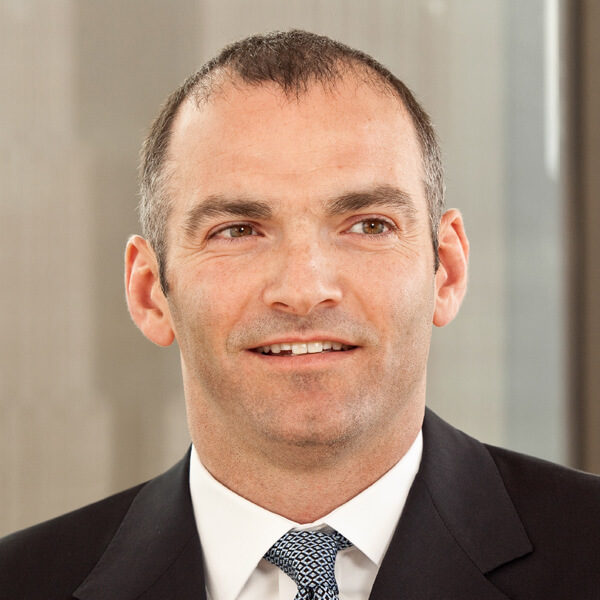Capital IdeasTM
Investment insights from Capital Group
Categories
長期投資
Investing in companies at times of crisis
In the early days of the COVID-19 pandemic, cruise ships around the world became stranded at sea as port officials flatly turned them away. Passengers spent days trapped on board amid baseless speculation that these ships were at the epicentre of the crisis.
It was a tough time to be in the cruise business. Within a month, stock prices for major publicly traded cruise lines were down about 80%, recalls Todd Saligman, an equity analyst who covers travel-related industries. Saligman had been following the industry for years, but this moment of crisis prompted him to take a closer look.
“There was a widespread belief that no one would ever get on a cruise ship again,” explains Saligman, an avid cruiser himself. “That struck me as a gross overreaction.”
Travel and leisure companies have rebounded strongly from the pandemic

Sources: Capital Group, Standard & Poor's. As of August 8, 2024.
Following weeks of intense fundamental research, including close collaboration between Capital Group’s equity and fixed income teams, the conclusion was clear: The major players in the cruise industry could survive a prolonged shutdown thanks, in part, to a unique provision of their debt covenants that allowed for some repayment flexibility.
“That prompted us to take action,” says Saligman, who identified several attractive travel-related companies at the time.
Fast-forward to today and nearly all travel-related companies have enjoyed a remarkable recovery from the dark days of 2020 — cruise lines, in particular. More people are cruising today than before the pandemic, thanks to a combination of pent-up demand and a focus on making cruise ships more enjoyable for passengers of all ages.
Questioning conventional wisdom
The cruise ship saga was a textbook example of how to invest in companies at times of crisis. It’s a specific skill that requires a certain type of investor — one who is willing to question conventional wisdom, comfortable with taking risks, adept at interpreting company balance sheets, and fine with losing sleep.
For some, it becomes the hallmark of their investment style.
“My favorite investment opportunities are the ones where any educated person can pick up a newspaper and know why they should avoid a company, but our analysis leads to the opposite conclusion,” says portfolio manager Chris Buchbinder “I look for opportunities where others see despair.”
Case in point: Boeing. Safety issues plaguing Boeing’s 737 MAX jet — in addition to COVID-related supply chain troubles and chronic labour shortages — have weighed on the company’s shares, plunging the world's second-largest aircraft manufacturer into crisis mode.
However, even with all the bad news, the fact remains there are only two dominant players in the world of commercial aircraft manufacturing: Airbus, based in Europe, and Boeing, based in the United States. Both are solid companies with long track records of success, virtually no competition and aircraft-order backlogs stretching out for several years.
“Boeing is obviously in a very challenged situation today,” Buchbinder acknowledges. “The company has mis-executed on a number of fronts. But I keep coming back to the idea that their planes are still sold-out for the next seven to eight years.
“If Boeing is able to solve its manufacturing issues, then I believe the company will be able to sell all the planes it can make at an attractive price,” he adds. “Our long-term investment horizon allows us to seek to take advantage of those types of opportunities.”
A change in company leadership, such as a new CEO, may also signal that a turnaround is in the works. Boeing’s freshly minted CEO started last week.
Taking advantage of recessions
Another crisis that can lead to potentially attractive investments is a recession. While no one likes recessions, with their associated job losses and financial dislocations, they are a necessary part of the economic cycle. And they often result in discounted stock prices on companies that otherwise trade at a premium valuation.
In fact, looking at US stock prices in aggregate, every recession over the past 34 years has hammered the S&P 500 Index but subsequently produced a powerful recovery period. From the market bottom, two-year returns have ranged from 47% in the aftermath of the early 1990s recession to 105% after the brief COVID-related contraction.
U.S. stocks have shown resilience after the past four recessions

Sources: Capital Group, Standard & Poor's. Return figures represent cumulative total returns for the S&P 500 Index. As of July 31, 2024.
“Times of economic turmoil certainly can create an opportunity for contrarian investing,” says Steve Watson, a Capital Group portfolio manager. And while he doesn’t need a recession to find distressed companies, they do appear more plentiful when the economic environment is faltering.
Evaluating a “hated” sector
Watson recalls a prime example during the early 1990s when he was assigned to cover European utilities as an analyst. Utilities in the United Kingdom had recently been privatised, and “it was a hated sector.” Investors weren’t accustomed to privately owned utilities at that time, and a weak economy was hurting their revenue base. Moreover, the UK’s Labour Party opposed privatisation and was favoured to win the upcoming 1992 elections.
Against this backdrop, UK utilities appeared attractive on a valuation basis — low enough that Watson decided to recommend them even in the face of substantial economic and political risk. His view was that these companies needed to be privatised so they could tap the financial markets, modernise their facilities and ultimately raise prices.
UK utilities sector rallied strongly after the 1992 elections

Sources: Capital Group, FTSE Russell. Index levels shown between January 1, 1990, and December 31, 1993.
The UK’s Conservative Party, led by Prime Minister John Major, wound up winning a 21-seat majority, taking pollsters and markets by surprise. The UK utilities sector skyrocketed — no longer a hated sector. “It was my first big call as an analyst,” Watson remembers.
Focusing on the fundamentals
That experience helped to shape Watson’s investment style throughout the next three decades of his career. It taught him the value of taking a step back, looking at the big picture, focusing on the fundamentals and blocking out incessant noise from the news media.
“One of my fundamental beliefs as an investor is that stock markets swing from excesses of optimism to excesses of pessimism and back again,” he says. “It’s a feature of the markets that is driven by investor psychology. I believe we can capitalise on those swings to generate superior returns for our shareholders.”
It’s important to remember, Watson stresses, the market isn’t always wrong. He still has scars from investing in banks too soon after the 2007–2009 global financial crisis. The financial sector took a long time to recover, and banks posted lacklustre returns over the next decade.
That said, there are times when crisis investing can pay off handsomely for investors with the confidence of their convictions, the skill to conduct deep fundamental research, and the ability to take a long-term perspective when others are focused on short-term problems.
“It’s about trying to see beyond the current turmoil to identify a brighter future where value can re-emerge,” Watson explains. “And besides, everybody loves a good comeback story.”
過去の実績は将来の成果を保証するものではありません。投資の価値および投資収益は減少することも増加することもあり、当初投資額の一部または全部を失うことがあります。本情報は投資、税務もしくはその他の助言の提供、または証券の売買の勧誘を意図するものではありません。
個人に帰属する記述は、その個人の出版日現在の意見を述べたものであり、必ずしもキャピタル・グループまたはその関連会社の意見を反映したものではありません。特に明記がない限り、すべての情報は記載された日付現在のものです。一部の情報は第三者から取得したものであり、そのため、かかる情報の信頼性については保証いたしません。
 Todd Saligman
Todd Saligman
 Chris Buchbinder
Chris Buchbinder
 Steve Watson
Steve Watson